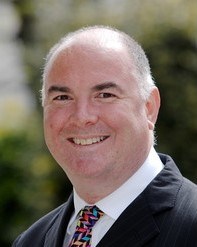Scott Darraugh & Ross Murray – Tackling the crisis in children’s residential care with local, cooperative solutions
- August 2024
We use cookies to help you navigate efficiently and perform certain functions. You will find detailed information about all cookies under each consent category below.
The cookies that are categorized as "Necessary" are stored on your browser as they are essential for enabling the basic functionalities of the site. ...
Necessary cookies are required to enable the basic features of this site, such as providing secure log-in or adjusting your consent preferences. These cookies do not store any personally identifiable data.
Functional cookies help perform certain functionalities like sharing the content of the website on social media platforms, collecting feedback, and other third-party features.
Analytical cookies are used to understand how visitors interact with the website. These cookies help provide information on metrics such as the number of visitors, bounce rate, traffic source, etc.
Performance cookies are used to understand and analyze the key performance indexes of the website which helps in delivering a better user experience for the visitors.
Advertisement cookies are used to provide visitors with customized advertisements based on the pages you visited previously and to analyze the effectiveness of the ad campaigns.

Society is at a crossroads. Political structures are being challenged. Economic systems are failing. People are feeling increasingly isolated and marginalised. The largest multinationals seem to be calling the shots and individuals seems less able than ever to influence what is going on around them. Whilst the world becomes increasingly a global village its citizens appear to increasingly want to relate to their immediate communities. We are consuming resources faster than we can generate them, yet still people go without. Xenophobia, hatred and greed are on the increase in a society where the individual can perceive themselves as sovereign.
If nothing changes we are heading for a major crisis and we need an answer. We need an answer that works for people, that builds communities, that sustains the planet, that works economically and that enables good governance.
Today co-operatives around the world employ 250 million people, and the largest 300 co-operatives generate $2.4 trillion (US) in turnover while providing the services and infrastructure society needs to thrive. As member-owned, member-run and member-serving businesses, co-operatives empower people to collectively realize their economic aspirations, while strengthening their social and human capital and developing their communities. Co-operatives contribute to sustainable economic growth and stable, quality employment – within the G20 countries, co-operative employment makes up almost 12 % of the total employed population.
History repeats itself. Whilst no point in history looks like today, there are parallels. At times of austerity and crisis it is often people coming together and working together for win-win solutions that produces radical new ways forward. The history of co-operation shows how radical these solutions can be. Today we need this radical approach to reach beyond economics.
With a philosophy that is both economic and social it is not surprising that within the co-operative movement Councillors who are also co-operators are seeking to do their bit to further this agenda. Over recent years we have seen some local councils taking major steps in making co-operation real. Whether in the way young people shape the services and commission the services that they receive; the development of new approaches to community energy; addressing issues of food poverty and children’s nutrition; giving local people a greater involvement in the shaping of the places where they live, work and play; or in supporting local residents to take control of assets and their economic futures; or in a myriad of other ways we have begun to see the co-operative ideal make a radical difference in town halls and, more importantly, local communities across the country.
The values and principles that co-operators hold dear were forged in times of difficulty by ordinary people. Growing from their endeavour we have international and national structures that support co-operation and cooperative development; we have academic thinkers, historians, educationalists and communicators telling our story; we have a political party with local and national representation; we even have councils exploring how the International Co-operative Alliance values and principles can change the way they work. But, in this melee of activity, do we have leadership?
The challenges the world faces are huge – it’s time for co-operators to start thinking bigger…
Councillor Chris Penberthy
Plymouth City Council Shadow Cabinet Member for Co-operatives and Housing
Labour and Co-operative – St Peter and the Waterfront
He is Chair of the CCIN Values and Principles Board
Email: ChrisPenberthy@Plymouth.gov.uk
Twitter: @ChrisPenberthy